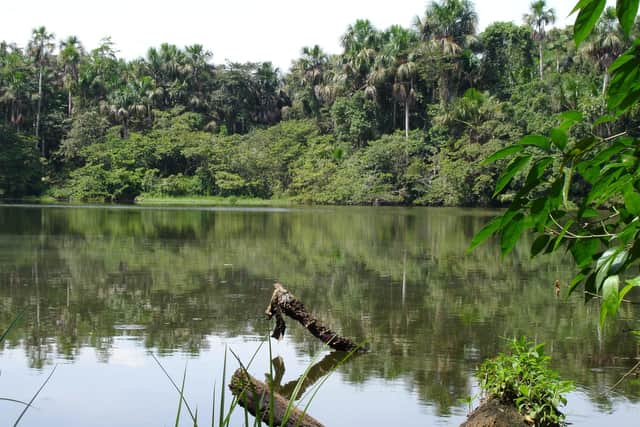World Wildlife Day strikes a chord
and live on Freeview channel 276
Forests are vitally important in the global fight against climate change. They are also home to 80 per cent of the world’s terrestrial biodiversity and hundreds of millions of people. World Wildlife Day highlights the livelihoods of communities who rely on forests, especially indigenous peoples, and the value of these ecosystems for both wildlife and humanity.
For generations, the expertise of indigenous populations in protecting wild places was heavily undervalued. They currently manage about 28 per cent of the world’s land surface, including some of the most ecologically intact forests on the planet. Their contribution to conservation is now increasingly recognised as leading the way in the symbiotic relationship between humans and nature.
Advertisement
Hide AdAdvertisement
Hide AdDr Tony Whitbread, ecologist and President of Sussex Wildlife Trust explains why: “Indigenous people are great custodians of forests because they value their natural environment so highly, only taking what they need. They live with nature, not above it, maintaining harmony and balance with their environment.”


Our exploitative relationship with nature is held responsible for the coronavirus infecting humans. In the developed world we have moved further from our traditional ways than indigenous communities. And many people have become disconnected from nature.
Evidence shows that time spent in nature helps alleviate depression and anxiety (as little as two hours a week can improve health and wellbeing). And may explain why a year of lockdowns has increased people’s appreciation of the outdoors.
A report published by the University of Cumbria last summer shows that nature has become more important to us since the start of the pandemic and protecting it is a higher priority. The survey revealed:
Advertisement
Hide AdAdvertisement
Hide AdAll age groups have spent more time in nature and most men and women said they would be more likely to continue doing so in the future.
Adults engaged with nature during lockdown by listening to birdsong, watching wildlife and taking time to notice bees and butterflies.
77 per cent of the survey’s respondents have taken photos and video of wildlife to identify and/or share on social media.
So, how can we keep the momentum going for our renewed passion to enjoy and preserve biodiversity? Tony suggests: “Make nature a part of your everyday life. Whether out for a walk or at home – it doesn’t matter whether you have a window box or a field, there are plenty of ways to attract and support nature.”
Advertisement
Hide AdAdvertisement
Hide AdOn April 6 at 2-3.30pm you can use Zoom learn how to become a custodian of primary Amazon trees as a way of carbon offsetting, it’s much better than planting a sapling. Book here https://www.eventbrite.co.uk/e/horsham-climate-cafe-what-are-we-investing-our-money-in-tickets-137399109435?